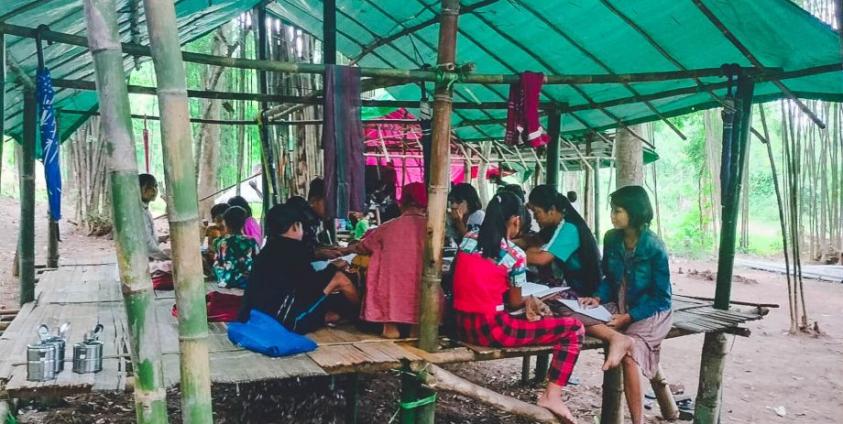War-displaced individuals fleeing conflicts across Myanmar are grappling with harsh weather this rainy season, urgently requiring accommodation assistance, United Nations Office for the Coordination of Humanitarian Affairs (UNOCHA) announced on July 1.
According to UNOCHA's statement, more than 3 million people have been displaced across Myanmar since the coup, due to ongoing military conflicts between various local armed resistance groups and the coup junta.
In southeastern Myanmar, where the controlled territories of the Karen National Union (KNU) are situated, war-displaced individuals are facing inadequate shelter, medicine shortages and other hardships exacerbated by the current rainy season, according to Naw Phaw Lar, the advocacy officer of Karen Human Rights Group (KHRG).
"There is a lack of adequate shelter for displaced people. As war refugees, it is impossible for them to find stable jobs to earn their livelihoods. The healthcare sector is also struggling, with many refugees, including children and adults, suffering from malaria. Accessing treatment is complicated by various issues, including transportation”, she said.
Residents in conflict zones live in constant fear of arbitrary shelling by the junta, the risk of being arrested as human shields, and the threat of airstrikes. War-displaced individuals also face severe difficulties in accessing humanitarian aid, such as healthcare, education, food, and shelter, Naw Phaw Lar added.
Human rights organizations, along with local and international civil groups, often criticize UNOCHA for distributing aid to Myanmar war refugees through the junta. They advocate for cross-border delivery to directly reach the local populations in need.
In August last year, UNOCHA chief Martin Griffiths met with coup leader Min Aung Hlaing to discuss plans for providing humanitarian aid to cyclone-affected people in Arakan (Rakhine) State. This meeting was strongly condemned by 514 civil society organizations.
Many war-displaced people are currently struggling without sufficient aid. To make matters worse, a World Food Program (WFP) food warehouse in Maungdaw Township, Arakan State, was looted and burned in June. UNOCHA has expressed concern that such situations are becoming a troubling indicator for the operations of organizations helping refugees.








